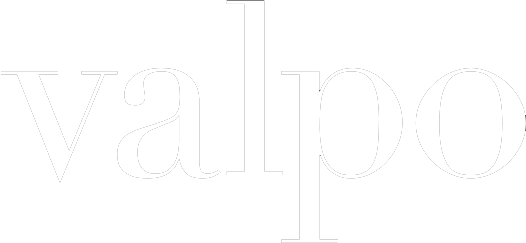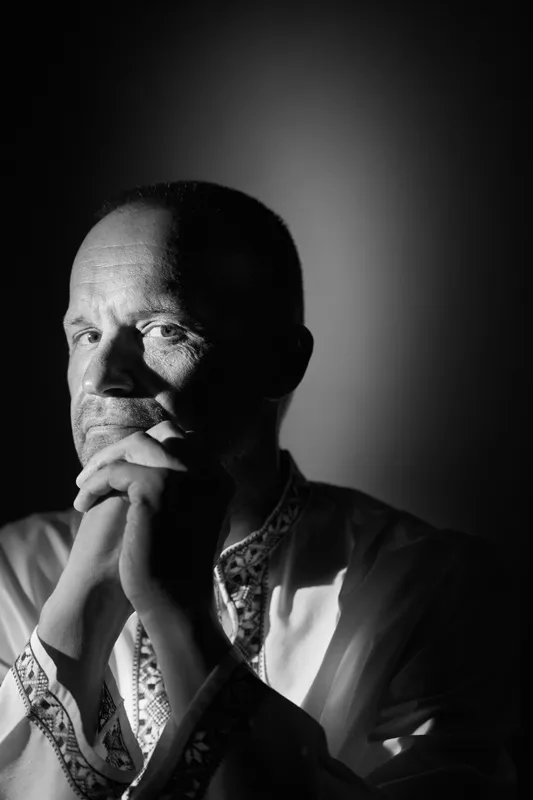“I was at home,” says Nicholas Denysenko, Ph.D., Emil and Elfriede Jochum Chair in Theology. “It was about 10 p.m., and I saw a friend of mine on my social media feed, who is originally from Ukraine, who said the bombing has started. I texted my brother and said ‘it’s actually happening. Putin did it.’”
Professor Denysenko was born in 1972 in Lincoln, Nebraska, to a family of immigrants with a rich connection to the history and culture of Ukraine. Three of his four grandparents were raised in the European nation during the Soviet period, while his fourth was an ethnic Ukrainian, born and raised on the coast of the Black Sea in what was part of the Soviet Union.
“They experienced significant trials and tribulations of persecution, particularly under Stalin,” Professor Denysenko says. “As the son of immigrants during WWII, my brother and I had access to people whose hopes had risen and fallen on the possibility of establishing an independent, sovereign Ukrainian state after the fall of the Soviet Union, only to see Ukraine absorbed by brutal Soviet oppression.”
Those hardships included Holodomor, or “murder by famine,” also known as the Terror- Famine, a man-made atrocity that cost the lives of three to four million Ukrainians. All four of Professor Denysenko’s grandparents survived Holodomor, among other trials, finally leaving Ukraine in the aftermath of WWII and making their way to an American-based refugee camp in Germany, where both of Professor Denysenko’s parents were born. By pure coincidence, both sides of the family made their way to Chicago.
GROWING UP WITH ONE FOOT IN THE PAST
Throughout his childhood, Professor Denysenko’s family fought to pass on the traditions and culture of their family’s homeland to an American-born generation. In addition to being part of the Ukrainian Orthodox Church, in which his grandfather was a pastor, Professor Denysnko and his brother attended weekly Ukrainian school. Four to five hours of every Saturday was spent learning about where they had come from.
“We were immersed in the fundamentals of Ukrainian culture, language, and music,” Professor Denysenko says. “We would memorize poems and songs, we would learn to read and write in Ukrainian.”
One of the major differences Professor Denysenko remembers between the traditions of his family versus that of his peers was the celebration of Christmas and Easter. The two major holidays are celebrated on different dates, as the Ukrainian Orthodox Church follows the Julian calendar, on which such holidays fall 13 days later than on the Georgian calendar.
“When I was in high school, I had a choir tour during Orthodox Easter,” Professor Denysenko recalls. “And my grandfather, being an Orthodox priest, wasn’t happy about it. But I went. I told him I’d sing our hymns at midnight like we normally would, and try to not wake my roommate with them. It was really an example of trying to live in those two worlds.”
A REUNION OF UPS AND DOWNS
In 1991, Ukraine finally gained its independence as a nation of its own, and only two years later, Professor Denysenko and his priest grandfather traveled to the newly recognized country to reunite with a family and community that had been separated for 50 years.
“It was really the uniting of people torn apart by war. Looking back on that, it’s the kind of thing you don’t forget,” Professor Denysenko says. “In a certain sense, it was a kind of miracle.”
Amidst the joys of reunion, there were also points of tension. Most young men, they saw, were no longer attending church. Alcoholism and depression ran rampant, rooted in a lack of equal access to education and opportunity. Some were even pining for the days of the Soviets, where government controlled markets and pricing afforded them a higher quality of life in some areas.
“I remember, quite vividly, my grandfather’s own frustration with his family,” Denysenko says. “He said, ‘look what we’ve been fighting for here in the immigrant community,’. There was a disconnect between the reality people were experiencing and what he said they could have if they just truly embraced freedom.”
Despite this frustration, Professor Denysenko believes that the people of Ukraine are hopeful for a better future.
“If you ask an Ukrainian about the possibility of a brighter future in the post-war, they’ll tell you it will happen,” Professor Denysenko says. “This is just a difficulty that will have to be addressed.”
FROM THE CLERGY TO ACADEMIA
Shortly after this visit to Ukraine, Professor Denysenko would complete his undergraduate degree in business from the University of Minnesota. His goal was to become a priest in the Ukrainian Orthodox Church, and so earned his M.Div. from St. Vladimir’s Orthodox Theological Seminary in 2000. Professor Denysenko then put his religious career on hold for a few years, heeding the advice of those who told him he would be a good fit for graduate school.
“I just thought I’d try it, but it became a career,” he says. “One of the things that really inspires me about teaching is that it’s a unique space to connect to students. It’s a joy to see them learning, and I feel like I’m learning a lot with them.”
After earning his Ph.D. from The Catholic University of America in 2008, Professor Denysenko taught for seven years at Loyola Marymount University in Los Angeles. A combination of cost of living, family ties, and a cabin in Minnesota were all part of the decision to move to Northwest Indiana in 2018, but Professor Denysenko summed up his primary driving motivator in one word:
“Opportunity,” he says. “Ones like these don’t come by very often, to have a University Chair position where you have the resources to pursue research. It’s a real privilege to teach the students here.”
Professor Denysenko’s plans for returning to Ukraine in 2021 were cut short by personal conflicts, then his planned 2022 visit was put on hold by the opening of a new, tragic chapter in the history of Ukraine and Russia. Professor Denysenko says that his emotional response to the situation has been split between his academic and humanitarian sides.
“Academically speaking, we’re called upon to present facts, to analyze them, to make them accessible to the general public,” Professor Denysenko says. “I’m able to do that dispassionately.”
SPEAKING ON TRAGEDY
Professor Denysenko has given a number of presentations, including a public panel with other professors and experts in early March 2022 titled “Putin’s War on Ukraine: History, Politics, and What’s at Stake;” a presentation that had almost 300 attendees. As a university chair with strong ties to Ukraine, its culture, and its history, Professor Denysenko has found himself suddenly in the spotlight as numerous media outlets from around the world sought his input on the schism between the Ukrainian and Russian Orthodoxies.
“I considered it a duty to meet the challenge of saying yes to as many requests as I could grant, especially media requests,” Professor Denysenko says. “If there was ever a reason a university chair position was created, this was it. I had an opportunity to address an issue that there was a desire from the ordinary person to understand.”
Regardless of his adherence to professionalism, Professor Denysenko does not hide his strong feelings about the conflict.
“I’m honest about it,” Professor Denysenko says. “I don’t call it a conflict. I call it Russia’s invasion of Ukraine.”
He is also critical of figures whose leadership dictates the response and attitudes towards the conflict. NATO leaders, who espouse the “sacred obligation” of Article 5, which guarantees an armed attack against an organization member will be seen as hostile aggression by all other members, are missing a vital point.
“I was bothered because I think the sacred obligation is to protect human life, to protect the vulnerable,” says Professor Denysenko. “I think this has exposed serious problems in the international world order and its mechanisms.”
He is also extremely critical of church leaders granting credibility to false narratives about the situation, either by repeating such narratives or refusing to call out those who make the claims. Professor Denysenko is especially bothered by the alleged prominence of fascism or relations with the Nazi party in Ukrainian politics as justification for violence. While extremist views exist within the Ukrainian government, Professor Denysenko assures that their representation in parliament is minimal, and does not reflect the overall Ukrainian attitude.
WAR AND FAITH
As an ordained deacon and theological academic, there is also a religious aspect to Professor Denysenko’s response to the conflict.
“My sense of the religious tradition is first that Christ is with them,” Professor Denysenko says. “He’s with those that are under assault at all times, in complete solidarity with them, and he will not abandon them. I also think it tells us a lot about what Christianity is: it’s not manifest in power and military victory, it’s manifest in perseverance and love.
“This is a real challenge to my native Eastern Orthodox community — the global one, not just the Ukrainian one,” Professor Denysenko says. “You have to consider, are you going to live out what you profess to be true? Are you going to confront evil and oppose it, or are you going to try and justify it?”
“What I have seen is that people just want to help, and I think that’s a wonderful testament to the community,” he says.
In the immediate wake of Russia’s attack, Professor Denysenko took to social media, asking for anyone who spoke Ukrainian to come forward and assist the refugees coming to the area.
“The response was overwhelming,” Professor Denysenko says. “People were telling me that they didn’t speak the language, but wanted to help. They wanted to donate things, give people rides, things like that.”
He says that one of the critical things for anyone looking to help the situation to do should be to stay up-to-date with both what’s happening in Ukraine, as well as the needs of the refugees in one’s area. If possible, monetary donations are generally the most helpful, as humanitarian aid professionals often have the connections and resources to stretch a dollar further than the average consumer.
“We’re trying to make sense of where God is in the midst of a human catastrophe,” Professor Denysenko says. “One thing I want to hold out hope for is that there are so many people who want to help, who see the suffering, who affirm the image of God in each person and want to preserve, sustain and protect the human dignity of those afflicted.”
CHRIST IS WITH THEM … HE’S WITH THOSE THAT ARE UNDER ASSAULT AT ALL TIMES, IN COMPLETE SOLIDARITY WITH THEM, AND HE WILL NOT ABANDON THEM. I ALSO THINK IT TELLS US A LOT ABOUT WHAT CHRISTIANITY IS: IT’S NOT MANIFEST IN POWER AND MILITARY VICTORY, IT’S MANIFEST IN PERSEVERANCE AND LOVE.

